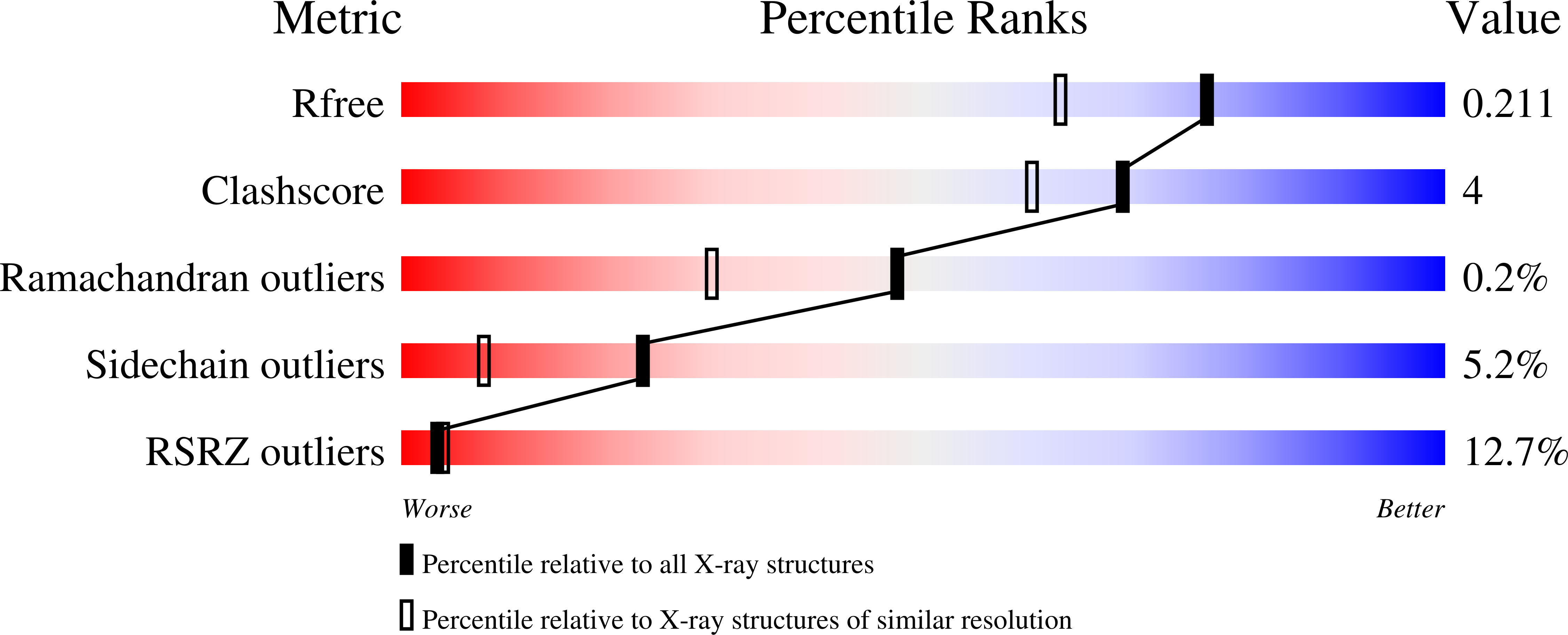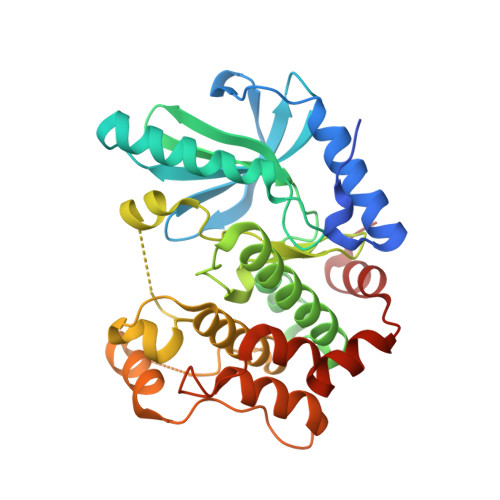Fragment-Based Discovery of Novel Allosteric MEK1 Binders.
Di Fruscia, P., Edfeldt, F., Shamovsky, I., Collie, G.W., Aagaard, A., Barlind, L., Borjesson, U., Hansson, E.L., Lewis, R.J., Nilsson, M.K., Oster, L., Pemberton, J., Ripa, L., Storer, R.I., Kack, H.(2021) ACS Med Chem Lett 12: 302-308
- PubMed: 33603979
- DOI: https://doi.org/10.1021/acsmedchemlett.0c00563
- Primary Citation of Related Structures:
7B3M, 7B7R, 7B94, 7B9L - PubMed Abstract:
The MEK1 kinase plays a critical role in key cellular processes, and as such, its dysfunction is strongly linked to several human diseases, particularly cancer. MEK1 has consequently received considerable attention as a drug target, and a significant number of small-molecule inhibitors of this kinase have been reported. The majority of these inhibitors target an allosteric pocket proximal to the ATP binding site which has proven to be highly druggable, with four allosteric MEK1 inhibitors approved to date. Despite the significant attention that the MEK1 allosteric site has received, chemotypes which have been shown structurally to bind to this site are limited. With the aim of discovering novel allosteric MEK1 inhibitors using a fragment-based approach, we report here a screening method which resulted in the discovery of multiple allosteric MEK1 binders, one series of which was optimized to sub-μM affinity for MEK1 with promising physicochemical and ADMET properties.
Organizational Affiliation:
Structure Biophysics & Fragments, Discovery Sciences, R&D, AstraZeneca, Cambridge CB4 0WG, United Kingdom.



















